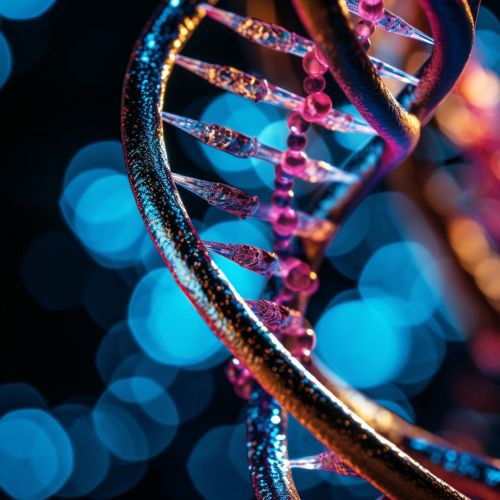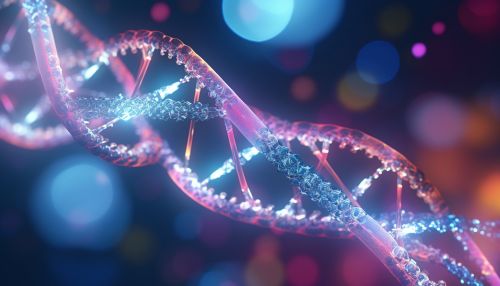Mutation
Introduction
A mutation is a change in the DNA sequence within a gene or chromosome of an organism that results in the creation of a new character or trait not found in the parental type. Mutations play a key role in evolution and the diversity of life, and can also cause diseases.


Types of Mutations
Mutations can be classified into several types based on the nature and scope of the genetic change.
Point Mutations
A point mutation is a type of mutation where a single base pair in DNA has been altered. Point mutations can be classified into three types: silent, missense, and nonsense mutations.
Silent Mutations
A silent mutation is a type of point mutation where the change in the DNA sequence does not result in a change in the amino acid sequence of the protein.
Missense Mutations
A missense mutation is a type of point mutation where the change in the DNA sequence results in a codon that codes for a different amino acid.
Nonsense Mutations
A nonsense mutation is a type of point mutation where the change in the DNA sequence results in a premature stop codon.
Insertions and Deletions
Insertions and deletions are mutations in which a part of a chromosome or a sequence of DNA is lost or inserted. These mutations can lead to frameshift mutations, which can alter the entire DNA sequence downstream of the mutation.
Chromosomal Mutations
Chromosomal mutations are alterations that affect whole chromosomes and the number of sets of chromosomes. These can be of several types, including deletions, duplications, inversions, and translocations.
Causes of Mutations
Mutations can be caused by a number of factors, including errors during DNA replication, exposure to radiation, exposure to certain chemicals, and some viruses.
Errors During DNA Replication
Errors during DNA replication can cause mutations. These errors are usually corrected by DNA repair mechanisms, but in some cases, the repair is not perfect and a mutation results.
Exposure to Radiation
Exposure to radiation, such as ultraviolet rays and X-rays, can cause mutations by damaging the DNA.
Exposure to Certain Chemicals
Certain chemicals, known as mutagens, can cause mutations by interacting with the DNA. These include certain pesticides, tobacco smoke, and some dyes and chemicals used in manufacturing.
Viruses
Some viruses can cause mutations by integrating their own genetic material into the DNA of the host.
Effects of Mutations
The effects of mutations can vary widely, from having no effect at all to causing serious diseases. Some mutations can also provide a survival advantage and drive evolution.
No Effect
Many mutations have no effect on the organism because they are repaired, are silent, or occur in DNA that does not code for a protein.
Diseases
Some mutations can cause genetic diseases, such as cystic fibrosis, sickle cell disease, and Huntington's disease. These are often caused by mutations in a single gene.
Evolution
Mutations are the source of genetic variation, which is the raw material for evolution. Some mutations can provide a survival advantage and are passed on to future generations.
